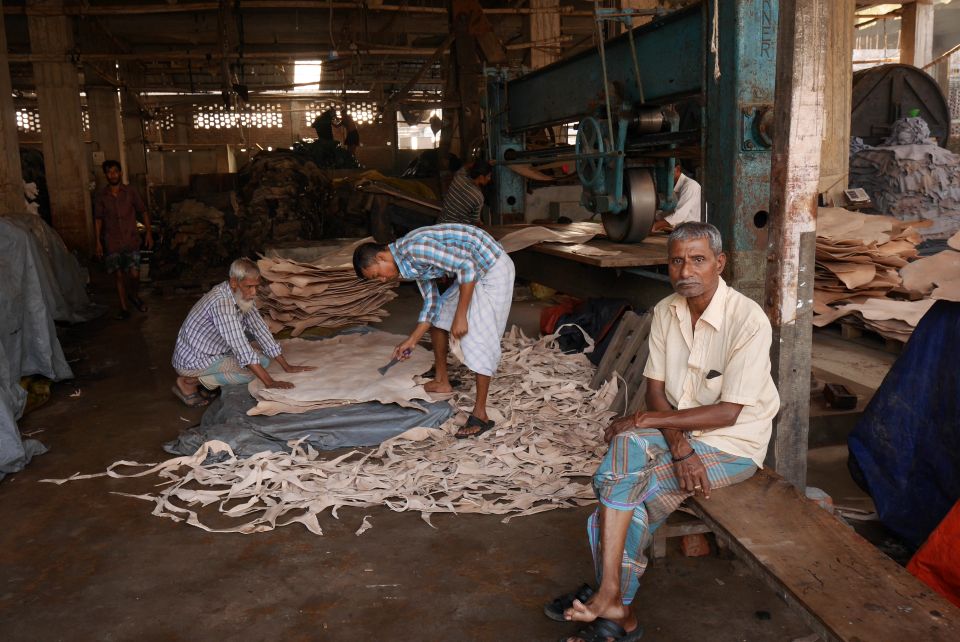First-of-its-kind index exposes blind spots in fashion and homeware climate claims

A new report by Keele University academics evaluates how 50 global fashion and homeware brands disclose the environmental impacts of artisan production.
The Crafted Report, published today, reveals how full visibility for artisans’ impacts remains a challenge across fashion and homeware supply chains.
The report launches the Artisans' Index - the first benchmarking exercise of its kind to focus on the work of skilled craftspeople who create objects partly or entirely by hand. The Index examines how clearly and comprehensively brands communicate their policies, practices and environmental approach to artisan labour.
All 50 brands ranked by the index have product ranges, from luxury leather handbags to jute doormats, which employ artisanal techniques. The project documents a growing awareness of the environmental impacts of artisan production. But the report reveals 'major gaps' in how consistently fashion and homeware brands include artisans, and metrics related to energy, water, and soil, in their environmental monitoring.
The Index is part of the larger Crafted project, led by Keele University in collaboration with the League of Artisans and funded by the IMPACT+ Innovation Network.
Professor Deirdre McKay, Professor of Sustainable Development at Keele University, said: “Artisans working in fashion's global supply chains require support for climate change adaptation along with fair pay.
"Workshops can expose artisans to heat stress and unhealthy or hazardous air quality. Access to clean water, for drinking, hygiene and craft processes, is becoming a challenge.
"Consumers want to know what brands are doing to support workshops to adapt to environmental conditions and to mitigate the environmental impacts of artisans' work. We found only 34 per cent of brands disclose the type of energy used in artisan workshops. These data gaps jeopardise labour protection and climate change adaptation. And they’re entirely fixable if brands are willing to look.
"The Index elevates the often-overlooked role of artisans in producing our clothes, accessories and home decor, in order to support a fairer, more inclusive sustainability transition – one that fully recognises the complexity of fashion and homeware supply chains."
The Index ranks luxury fashion brands at the top for performance, with homeware brands concentrated towards the bottom. Researchers say the difference between fashion and homeware brands suggest greater regulatory, investor, and consumer pressure on the fashion sector drives improved transparency.
Carry Somers, Director of Advocacy and Programmes at League of Artisans, said: "Climate strategy starts with knowing where environmental impacts occur. The CRAFTED Report shows that practices associated with artisanal labour, often unregulated, are missing from all brand disclosures."
The report puts forward a series of recommendations. These include: a shift from brand-led to sector-wide accountability; ensuring artisanal production is fully integrated into environmental disclosure; and a transformation in how artisans are viewed - from labourers to innovators and co-creators of low-impact, culturally rooted supply chains.
Most read
- Keele-led partnership to lead multi-million pound research initiative to transform mental health support
- New debate series to explore societal challenges affecting universities
- Keele researchers selected for prestigious USA exchange programme
- Keele University launches pioneering green hydrogen generation hub
- Keele celebrates graduation of its first fully qualified paramedics
Contact us
Andy Cain,
Media Relations Manager
+44 1782 733857
Abby Swift,
Senior Communications Officer
+44 1782 734925
Adam Blakeman,
Press Officer
+44 7775 033274
Ashleigh Williams,
Senior Internal Communications Officer
Strategic Communications and Brand news@keele.ac.uk.



